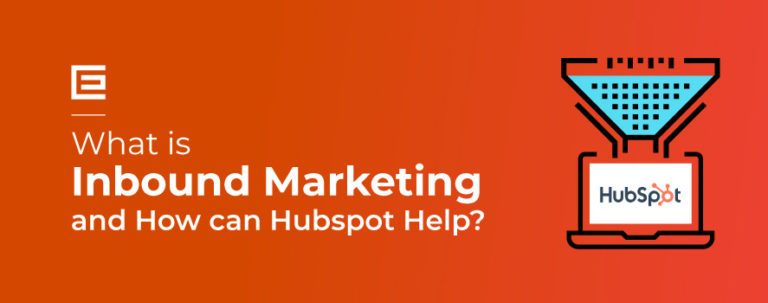Well, perhaps it wasn’t quite that easy, but fast forward 20 years, and the phone book has vanished as the search medium of choice. (For the millennials who might be reading this: a “phone book” was a giant, yellow, thousand-page directory of businesses and residences that was printed out on “paper,” a thin parchment made from trees.)
Today, of course, the search for products and services begins on the internet. You already know that, that’s how you got here. So what’s the recipe for animal hospital marketing success today?
Where to Begin With Online Marketing for Animal Hospitals
No matter what kind of marketing you do for your animal hospital business, the hub of all of your marketing activities will be your website; and the first thing you need before building a website is a domain name. Your domain name is going to be a part of every marketing effort you embark upon from day one. It will be on your business cards, your shirts, your pens, your mugs, your print ads, your receipts, your signage, your radio ads, your highway billboards, and eventually your Super Bowl commercial, so make sure you pick a good one.
Picking a Domain Name for Your Animal Hospital Website

Picking a domain name can be tough, but it is also a lot of fun. It is the first step in inventing your entire online brand. It is not an afterthought. Be creative and let your personality shine through. There is no magic formula for choosing the perfect domain name, but there are a few things you should keep in mind.
- Keep it as short as possible. The shorter your domain name is, the easier it is to remember. It is easier to share with others, it is easier to type (especially on a mobile phone), and from a visual standpoint, it more easily fits into the wide assortment of places it may appear online and offline. It will also end up being part of your email address. I personally would not want to have to tell people that my email address was gregory@NorthKalamazooVeterinaryServices.com. It hurts to even look at that.
- Make it easy to spell. Avoid dashes, homonyms, puns, or anything else that you would potentially have to explain to someone else. Have you ever played the telephone game in elementary school? It’s the one where you whisper something in someone’s ear, then they whisper it to the next person, then the next, until the last person in line says it aloud. Everyone has a good laugh when the last person inevitably says something completely different than what the first person said. Word of mouth for your business works the same way. You don’t want everyone in the chain having to say “No, it’s critter with a K. No, it’s doggie with an IE, not a Y. No, it’s kitty (dash) castle.”
- Get the .com extension, for the same reasons as the first two tips. If someone only remembers the first part of your domain name, they will naturally assume it ends in dot com. I’m not saying you can’t succeed with a dot net TLD (top level domain), but avoid it if possible.
- Avoid trademark infringement. Do some research and make sure the name you’ve chosen isn’t copyrighted. You don’t want to end up in legal trouble. You can also lose your domain.
- Make it intuitively obvious. An internet searcher should know what your site is about just by the domain name. You might want to honor your feline family member by naming your practice after him, but “GullysCabin.com” doesn’t necessarily convey that you run an animal clinic.
- Don’t focus on keyword stuffing. As per tip #5, having the appropriate words in your domain name is important in making it obvious what service you provide, but it is more important to make your domain name brandable than to stuff it with keywords for Google’s sake. First of all, Google gives way less weight to keywords in domain names than it used to. Their algorithm is much more sophisticated than awarding huge ranking mojo just for buying the keyword stuffed domain. Second of all, what better way to make your business sound mediocre than calling it PetClinicInRaleigh.com. Would you call your restaurant ChineseFoodinRaleigh.com?
Creating a Responsive Animal Hospital Website
Gone are the days where you can get away with a static website designed to fit on one kind of screen. In many industries, website traffic from mobile devices has already surpassed traffic from desktop computers, and this trend will only continue. Google, Samsung, and Apple are even trailblazing the path to putting the internet on your wristwatches and eyeglasses. Who knows what the future of wearable technology will bring, but the mobile revolution is not a thing of the future. It has already happened. Your potential customers are conducting searches and doing business on their mobile devices, and if your business isn’t where your customers are, you lose.
Get a Custom WordPress Website for Your Veterinary Practice
WordPress is the content management system of choice for millions of websites worldwide. One of the main things that makes WordPress so attractive is the size of the community that supports it. There is a huge pool of developers that are constantly creating new add-ons and plugins to extend the core functionality of the user-friendly system. With a custom WordPress website from TheeDigital, you can have more than a beautiful “brochure-style” website, you can have an invaluable tool for your business operations. You can have interactive maps, online registration forms, newsletters, appointment reminder systems, and even full eCommerce functionality if you want to sell products online. With peace of mind hosting from TheeDigital, you’ll have a team of experts on your side to make sure your site remains up-to-date and safe from hackers. If you do ever want to take on the responsibility of managing your site alone, you retain full ownership of your website.
Need help implementing these web design trends into your strategy?
Our web design experts can help! Get in touch by calling 919-341-8901 or scheduling a consultation.
Moving along, let’s talk about putting these assets to work with PPC, SEO, and social media. Before we dive into the importance of each, we must first ask the important question:
How Are Your Potential Clients Choosing Their Veterinarian?
There are essentially two different avenues that a pet owner may take when it comes to choosing a veterinarian to take care of their favorite furry family member. The first avenue they may take is to search. As mentioned earlier, that search is likely conducted online.
Some people sit down and type their search into Google, some people ask Siri, while others may prefer the guy with the Australian accent. Let’s not forget Cortana or Alexa either! Whether you ask one of these digital assistants a question or type in a search the old fashioned way, the end yield is going to be a page of search results.
If your veterinary practice doesn’t show up on this ever important first page, chances are it won’t be found at all. We’ll talk about how PPC and SEO can help you in this department.
The other main way a pet owner can be influenced to choose a vet is through word of mouth or a personal recommendation. A positive endorsement of your practice from a trusted friend can do a lot to sway a potential client in your direction.
Where do these types of conversations tend to happen nowadays? You guessed it, social media. We’ll talk about ways, free or with paid ads, that you can influence your potential clients on platforms like Facebook, Instagram, and Twitter.
Gain More Clients for Your Veterinary Practice With PPC Advertising
By now, of course, you are convinced that your animal hospital’s website needs to show up on the first page of search results in order to be found. With pay per click marketing through Google AdWords or Bing Ads, you can make that happen overnight.
If you do a Google search for “vets in charlotte,” for instance, the first four results you see in most cases will be paid ads. On a laptop, tablet, or phone, these first four results can take up the entire screen. All the organic unpaid results are pushed “below the fold,” meaning they are not initially visible and you have to scroll down the page to get to them.
The further down you go, the less likely these results are to be clicked on, and if you are on page two, you can pretty much forget about it. As a PPC advertiser, you compete for the top positions on the page based largely (but not solely) on how much you are willing to pay per click, and are only charged when people actually click on your ad.
You can also set a daily budget that will stop your ads from showing after you’ve spent a certain amount of money. The fact that you have full control over your spending means that advertisers of any budget level can pay to play, so don’t be scared.
How Search Engine Optimization Can Grow Your Veterinary Practice
Below the paid ads, the next thing you will usually see on your search results page is the local map listings, commonly referred to as the “3 pack,” then the regular organic listings beneath those. Search engines are constantly testing out new results page layouts, so it is very likely that the layout will change again slightly in the near future.
The local results b get a good portion of the attention since there are a lot of visual elements in this section to draw the eye. First of all, there is the map that shows where the various businesses are located.
We’ve all got hectic schedules, so the convenience of your vet clinic’s location relative to the searcher could definitely be a contributing factor when someone is deciding on a new vet. It is important to make sure you have claimed your Google My Business profile and that your profile details are correct if you want people to find your business in these local results. Making sure your NAP (name, address, and phone number) is accurate across other online directories is also extremely important.
The other thing you’ll see in this section are reviews. In this day and age, our eyes have been trained to look for these review stars. If you’ve ever shopped on Amazon, you probably spend a good portion of your time reading the reviews.
We all know some reviewers are unnecessarily belligerent, and some positive reviews may be fake, so each individual review may not carry a lot of weight. What matters more is quantity. If one business has 75 reviews and a 4.3 star rating, and another one has 3 reviews and a 5.0 star rating, we generally trust the business with more reviews even though the star rating is lower. Likewise, we would also trust that the business with 75 reviews and a 1.5 star rating was indeed bad.
Most people won’t take the time to review your business without being asked to do so, so ask them! Ask them a lot. Don’t just bury the request somewhere on a receipt or in an email autoresponder somewhere. Be proactive and bring it to your customers’ attention. Tell them it is important to you.
If you provide great service, most people would be glad to share their positive experience. Too often, only a negative experience is what drives people to take the time to leave a review.
Using Facebook and Social Media to Grow Your Vet Clinic’s Brand
If there is one thing that pet owners have in common, it is that we are completely nuts about our pets. We gush over them, we give them ridiculous names, we buy them birthday presents, we constantly take pictures of them, and we all fight over whose is the cutest. It’s not normal behavior. We’re all lunatics, and we’re proud of it.
As a veterinarian, your patients are these cute critters, and your clientele are their crazy owners who are just dying to talk about them to anyone who will listen. It’s a goldmine of social shareability.
Ask your clients if it is okay to share pictures of their pets. (They’ll almost always say yes.) In fact, they’ll be super excited at the idea of their pet becoming famous. Take a picture of a happy doggie after his surgery is done. Title it “Look Who’s Feeling Much Better Today!” and tag the owner. Do you think there’s a chance in you-know-where that this person won’t like and share the post with everyone they know? Or take a picture of a dog with the cone of shame on his head, and listen as your whole audience collectively sighs “ooohhhhh, poor guy!!!!”
Using Paid Facebook Ads for New Movers
In addition to all the easy, free advertising you can do with Facebook, you can also do some really cool things with Facebook’s paid ads. Facebook has a massive list of targeting criteria you can choose from when deciding to whom you want to show your ads. One of these demographics is new movers. Another, of course, is pet owners.
You can specifically target people who are pet owners who have just recently moved to town. How could you possibly better describe the kind of person who would be looking for a new veterinarian? Also, if any of their friends have already liked your Facebook page, the ad will say that they like your business at the top, adding an additional layer of social proof.
Need help with your animal hospital digital marketing strategy?
Our marketing team can help! Get in touch by calling 919-341-8901 or scheduling a consultation.







